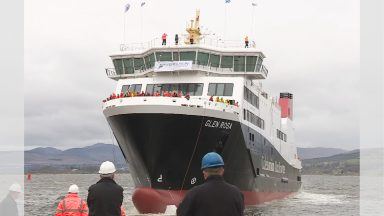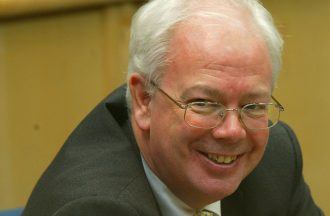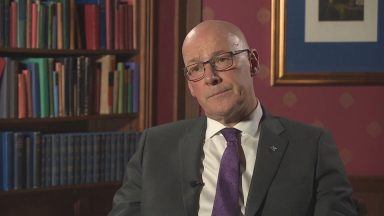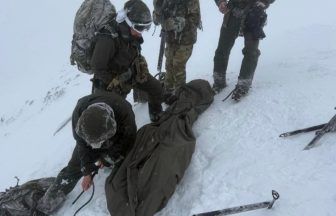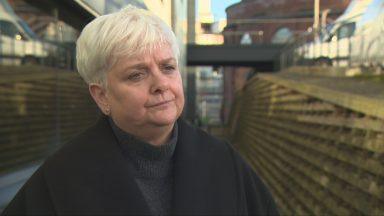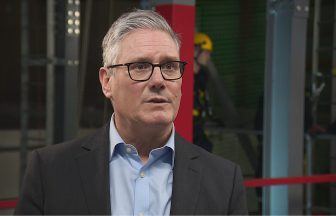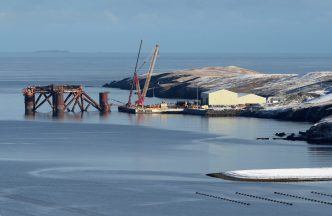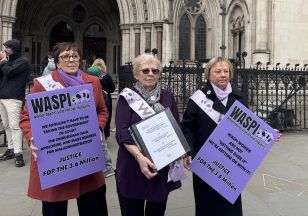The Scottish Government is being urged to suspend its support for increased production in the salmon farming sector.
It comes as a new report claims the impact the industry has on employment and the economy has been hugely overestimated.
The study suggests the sector’s gross value added (GVA) had been “possibly exaggerated by 124%”, while employment “could be overestimated by a massive 251%”.
rural economy secretary Fergus Ewing branded the timing of the publication of the report “disappointing”.
He said: “The Scottish Government’s focus at this time is fully on supporting our remote, coastal and island communities to cope with the public health and economic crisis caused by Covid-19.
“That includes supporting the thousands of jobs and livelihoods linked directly and indirectly to fish farming in these communities and elsewhere in Scotland, and providing people with a healthy, affordable source of protein by ensuring that supermarkets stock Scottish salmon.”
But Charles Millar, of the Sustainable Inshore Fisheries Trust, which commissioned the research along with Salmon and Trout Conservation Scotland, demanded the Scottish Government authorise an independent assessment of the economic contribution of salmon aquaculture “that considers the industry in the round”.
He spoke after the report branded the existing economic data for the sector as “partial” and “incomplete”, claiming “income and employment evidence is unreliable”.
But industry body the Scottish Salmon Producers Organisation (SSPO) said the report “makes grotesque assumptions, unfounded claims and offers numerous unsupported anecdotes as evidence”.
Scotland’s seven major salmon producers directly employ more than 2,300 people, according to its website.
The SSPO said a record 94,300 tonnes of Scottish salmon was exported to 54 countries in 2019, an increase of 26% on the previous year.
In a Commons debate last year, the Scottish salmon farming sector was described as being worth more than £1bn to the UK economy, with MPs told it supported 12,000 jobs across the supply chain and had a GVA of £620m.
But the report accused the Scottish Government of failing to consider the impact expanding the aquaculture sector could have on other industries, saying commercial fishers, particularly creel fishers and scallop hand divers, fear this could reduce their net profits.
Some in the tourism sector, particularly those who run sea safaris, are also concerned, it added.
The report said: “Faced with an evidence base that is partial, incomplete, unreliable and even irrelevant, it is difficult to understand how the Scottish Government can sensibly address the question of whether further damage to Scotland’s marine environment is a price worth paying.”
Mr Millar said: “By considering only the benefits and ignoring the costs, ministers are skewing the debate about how Scotland’s inshore waters should be managed.
“If Scotland is to look after the long-term prospects of our marine-dependent communities, it’s time to take proper account of the economic activity lost as a consequence of aquaculture, whether that’s inshore fishing, recreational sea angling or tourism.
“It is vital that the Scottish Government commissions an independent assessment of the economic contribution of salmon aquaculture that considers the industry in the round.”
“Pending further evidence, the Scottish Government should consider suspending its support for additional salmon production.”
Report co-author Dr Geoffrey Riddington said: “The Scottish Government’s support for salmon farming industry expansion relies exclusively on estimates about income and employment creation.
“The reality is that the industry’s damage to Scotland’s inshore waters must result in many other stakeholder groups being worse off.
“At no time has the Scottish Government even identified these stakeholder groups, let alone calculated the extent of their costs.”
Andrew Graham-Stewart, of Salmon and Trout Conservation Scotland, said: “This study lays bare the basic deficiencies in the evidence which underpins Scottish ministers’ unstinting support for the salmon farming industry.”
He added: “Given the value of our marine environment to the public and local communities, policy should be based upon cost benefit analysis, not upon benefit analysis. Only assessing half the impacts of an activity is not good enough.”
Mr Ewing, said: “This report does not reflect the substantial and growing jobs supported by the sector in the supply chain in Scotland.
“It is abundantly clear that there are now many companies in the supply chain supplying vessels, high tech engineering solutions, supplies and provisions, chandlery services and many other areas.
“It also makes no regard either for the fact that many of the jobs in fish farming are occupied by those living in the most remote rural and Island locations in Scotland where there are few if any other opportunities, nor that these jobs are very well paid.”
An SSPO spokesman said: “The Scottish Salmon Producers Organisation (SSPO) welcomes robust independent economic and scientific research. This study however makes grotesque assumptions, unfounded claims and offers numerous unsupported anecdotes as evidence for its arguments.
“The Scottish salmon farming sector is committed to being a good steward of the marine environment and adheres to strict regulations and legal requirements to ensure that it has minimal environmental impact.
“While offering employment to thousands of people in some of country’s most fragile rural communities, salmon farms occupy just 168 hectares of Scotland’s 10,000 mile coastline – ensuring minimal interference with recreational marine activities.”
Follow STV News on WhatsApp
Scan the QR code on your mobile device for all the latest news from around the country




